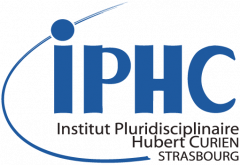Speakers: Andreï Andreyev (Univ. York)
In the last two decades, through technological, experimental and theoretical advances, the situation in experimental fission studies has changed dramatically. With the use of advanced production and detection techniques much more detailed and precise information can now be obtained for the traditional regions of fission research. Crucially, new regions of nuclei have become routinely accessible for fission studies, by means of radioactive ion beams.
The talk will briefly introduce classical concepts of fission, followed by examples of novel developments in fission techniques, in particular the emerging use of inverse-kinematic approaches, both at Coulomb and relativistic energies at FRS (GSI), SAMURAI (RIKEN, Japan), and VAMOS (GANIL, France) and of fission studies with radioactive beams [1].
The emphasis on the fission-fragment mass and charge distributions will be made for low-energy fission. Such studies have become possible due to the development of several complementary experimental studies, including the β-delayed fission with laser-ionized mass-separated radioactive beams at ISOLDE(CERN) [2,3].
The talk will conclude with the discussion of the new experimental fission facilities which are presently being brought into operation, along with promising ‘next-generation’ fission approaches, which might become available within the next decade [1].
[1] A.N. Andreyev, K. Nishio, K.-H. Schmidt, Reports on Progress in Physics, 81,1 (2018)
[2] A.N. Andreyev et al, Physical Review Letters, 105, 252502 (2010)
[3] A.N. Andreyev, M. Huyse, P. Van Duppen, Reviews of Modern Physics, 85, 1514 (2013)
https://indico.in2p3.fr/event/36328/
Début : 04/07/2025 à 10:30
Fin : 04/07/2025 à 12:00
Prochains évènements
Retour à l'agendaÉcole de GIF 2025 : les futurs collisionneurs et leur physique
les futurs collisionneurs et leur physique https://indico.in2p3.fr/event/36304/
M2SAP: Team presentations (Presentations of research activities by the DRS teams)
Tentative ordering (based on last year) 22/10 (Wednesday) CMS team presentation by Éric Chabert 23/10 (Thursday) Belle2 team presentation by Jérôme Baudot 24/10 (Friday) Theorie team presentation by Kamila Sieja 12/11 (Wednesday) From Nuclei to Stars team by Olivier Dorvaux 13/11 (Thursday) DeSIs team by Marie Vanstalle 19/11 (Wednesday) PICSEL team by Ziad El Bitar 20/11 (Thursday) Neutrino team by João Pedro Athayde Marcondes de André 21/11 (Friday) DNR team by Greg Henning (to be exchanged) 26/11 (Wednesday) ALICE team by Antonin Maire 27/11 (Thursday) OGMA team by Thierry Pradier 28/11 (Friday) ? https://indico.in2p3.fr/event/36916/
